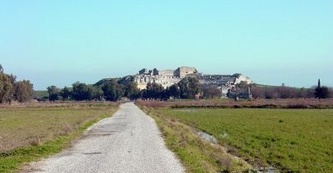 David Opderbeck, a professor of law, weighs in on a crucial theological topic that affects our understanding of law. Are you Roman Catholic or Reformed — or where are you on this issue?
David Opderbeck, a professor of law, weighs in on a crucial theological topic that affects our understanding of law. Are you Roman Catholic or Reformed — or where are you on this issue?
Law: Can We Be Good?
Law is an effort to respond to one of the most basic human questions: “what does it mean for people to be ‘just’ and ‘good'”? Any understanding of “law” therefore will presuppose an anthropology (a theory of what it means to be human) as well as an ethical framework constructed around that anthropology.
All Christian theories of law share at least two basic anthropological assumptions: (1) human beings are created in God’s image, and therefore are created “good”; but (2) human beings are fallen. Within the Christian tradition, however, there is significant disagreement about the implications of the claim that human beings are “fallen.”
What do you think the doctrine of the fall implies about human nature? How do these implications relate to theories of law? Can we consider acts of civil society that seem to be “good” – for example, efforts by non-Christians and Christians alike to care for victims of the Haitian earthquake – to be genuinely “good?”
There is a subtle but substantial divide between Catholic and
Reformed anthropology that can significantly impact theories of law. According to the great Medieval
Catholic theologian Thomas Aquinas, the fall marred the “likeness” of God in
humanity but did not obliterate the “image” of God. Aquinas based this conclusion on a (probably incorrect)
exegesis of Gen. 1:26, which uses
different terms translated “image” and “likeness” (“Then God said, let us make
man in our image [tselem], according to our likeness [demut]. . . .”).
For Aquinas, this meant that human reason survived the fall more or less intact. Human beings, therefore, remain capable
of understanding what is right and good according to “natural reason” even
after the fall. All human beings,
according to Aquinas, “possess a natural aptitude for understanding and loving
God; and this aptitude consists in the very nature of the mind, which is common
to all men” (Summa Theologica, I.93.4.). The “likeness” of God, however, is a
resemblance to God’s glory, which can only be recovered by those who are
regenerated by God. (Ibid.)
A person can only “habitually” know and love God through grace. (Ibid.) People therefore are capable of
knowing and doing good, but can only habitually do good through divine grace,
and can only become perfect and thereby have the “likeness” of God restored
through ultimate divine salvation.
Aquinas’ view that all people possess the spark of reason
underwrites the possibility of “natural law” reasoning. Christians might know God’s law more fully
than non-Christians, but Christians and non-Christians can find common ground
in the shared “image” of God through the exercise of reason. This facilitates a system of civil law
and governance that is not necessarily drawn directly from special divine
revelation.
The Reformers understood the fall’s effects more
extensively. The Heidelberg
Catechism states the orthodox Reformed view with dour Puritanical
simplicity:
Question 8. Are we then so corrupt that we are wholly incapable of doing
any good, and inclined to all wickedness?
Answer:
Indeed we are; except we are regenerated by the Spirit of God.
This view of the fall’s effects leaves no space for any
concept of “natural reason” or “natural law.” In fact, it leaves no room for
the notion that a non-Christian who cares for Haitian earthquake victims is
doing something genuinely “good.”
At best, the unregenerate person can accomplish “civic good” – things
that are generally good for society – but these are never truly “good” works
because the unregenerate will remains bent only towards the self and away from
God.
Nevertheless, the Reformers and their theological heirs
wrestled extensively with the problem of “apparent good” being done by
non-Christians. As described in a
delightful book by Stephen Grabill (Rediscovering the Natural Law in Reformed Theological Ethics (Emory University Studies in Law and Religion)
), a number of early Reformed jurisprudes
developed natural law theories based on the notion that God graciously allows
even unregenerate people to discern something of what is necessary to maintain
social order. These ideas
eventually fed into a detailed theology of “common grace,” most notably in the
Dutch Reformed tradition exemplified by Abraham Kuyper and Hermann Dooyeweerd,
and echoed today by writers such as Charles Colson and Richard Mouw.
The “common grace” tradition seems to exist in severe
tension with the Heidelberg Catechism’s absolutism about human ability to do
good. Indeed, many branches of the
Reformed tradition today – both in its conservative-fundamentalist forms and in
its more “mainline” Barthian varieties – reject the notion of “common grace” as
essentially heretical. Under
these approaches to the Reformed tradition, “law” generally can be grounded
only in revealed divine commands.
More “conservative” versions of divine command theory tend to result in
reconstructionist and/or separationist views of positive law; more “mainline”
versions tend to give up on the idea of meaningful engagement with secular
positive law.
I have always liked the idea of “common grace.” Nevertheless, I have to confess that it
seems exceedingly hard to justify by scripture or by the Magesterial /
confessional Reformed tradition. I
also quite like the Catholic Social Teaching tradition’s appealing to the
integrity and beauty of reason.
Nevertheless, I have to confess that it at some point it offends my
Reformed-ish sensibilities, as well as my “postmodern” skepticism of “neutral”
accounts of “reason.” I’m also very hesitant about Aquinas’ anthropology, which
seems to be based in a key exegetical mistake in distinguishing the divine
“image” and “likeness.”
What’s a Christian to
do when it comes to thinking about anthropology, law, and the “good?” How should we characterize acts by
non-Christians, such as helping earthquake victims, that seem to be “good?” Is “natural law” theory a viable
Christian option?

